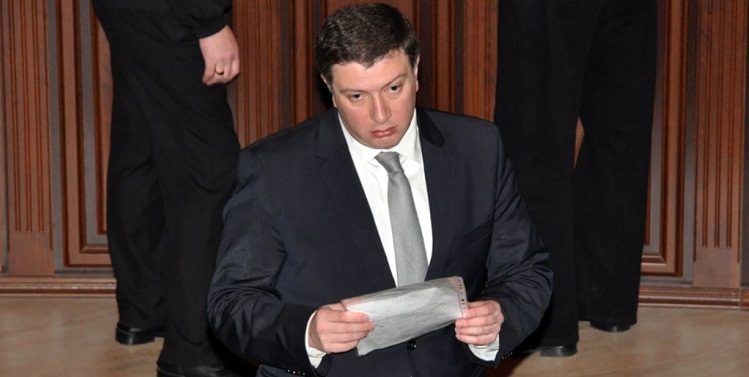Opposition leader Ugulava says his imprisonment mustn't affect demand for electoral reform

Leader of European Georgia opposition party and ex-Mayor of Tbilisi Gigi Ugulava was sentenced to three years and two months in prison last month. Photo: RFE/RL.
Leader of the European Georgia opposition party, former Tbilisi Mayor Gigi Ugulava who has been imprisoned for the embezzlement of 48 million GEL in state funds, says that he does not want the opposition’s demand for his release to create an obstacle in reaching an agreement [with the ruling party] on the 2020 election issue.
I do not want the issue of my release to become a barrier in receiving a maximally proportional electoral system for 2020 elections which is vitally needed for the country’s development,” Ugulava wrote in Matrosovi prison of Tbilisi where he is serving his sentence.
Ugulava said that the founder of the ruling Georgian Dream party Bidzina Ivanishvili ‘took him and other political prisoners hostages’ to trade with the election issue and ‘prolong his power.’
Being in prison is my choice and is a part of the fight.If the 2020 elections are held per the proportional system, it will lead to the defeat of Ivanishvili’s regime. The unity of the opposition in the fight [to change the current government] is vital,” Ugulava said, adding ‘friends, do not worry about me and keep united!’
 Georgian Dream officials have offered MEPs in the European parliament to create a special mission, composed of members of different political groups, to look into Ugulava's case.
Georgian Dream officials have offered MEPs in the European parliament to create a special mission, composed of members of different political groups, to look into Ugulava's case.
The opposition says that ‘no deal with the ruling party’ is possible if Ugulava and ‘other political prisoners’ are not released.
The ruling party, which made new election offers for the 2020 parliamentary elections to the opposition, says that there are no political prisoners in the country and urged the European Parliament to send a fact-finding mission in Georgia to look into Ugulava’s case.
Controversy around the 2020 elections sparked at the end of last year when the parliament rejected the ruling party’s proposed election bill on an early transition to a fully proportional electoral system starting from 2020 instead of scheduled 2024.
Read more about the controversy here.
 Tweet
Tweet  Share
Share